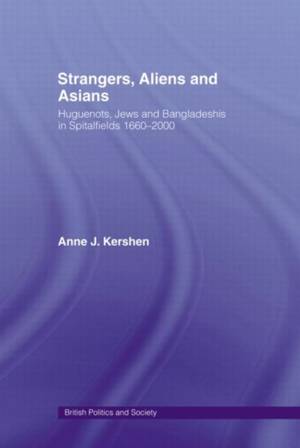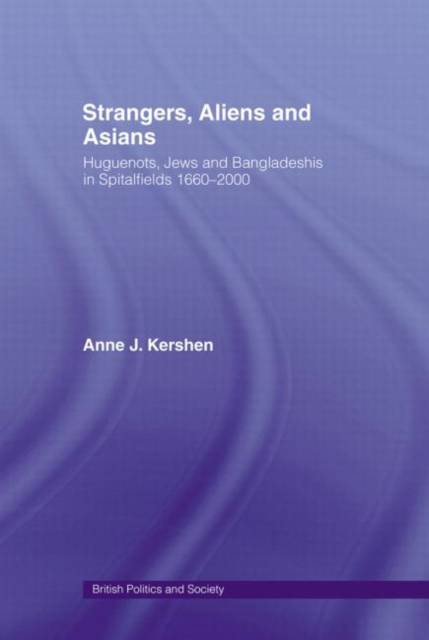
- Retrait gratuit dans votre magasin Club
- 7.000.000 titres dans notre catalogue
- Payer en toute sécurité
- Toujours un magasin près de chez vous
- Retrait gratuit dans votre magasin Club
- 7.000.000 titres dans notre catalogue
- Payer en toute sécurité
- Toujours un magasin près de chez vous
Strangers, Aliens and Asians
Huguenots, Jews and Bangladeshis in Spitalfields 1666-2000
Anne KershenDescription
Exploring the dynamics that drive the processes of immigrant settlement and assimilation, this fascinating book looks at whether these are solely the outcome of the temporal setting, cultural background, and the contemporaneous socio-economic and political conditions, or whether there are factors which, irrespective of the prevailing environment, are constant features in the symbiosis between the outsider and the insider.
Focusing on the area of Spitalfields in East London, this volume compares and contrasts the settlement, integration and assimilation processes undergone by three different immigrant groups over a period of almost three hundred and fifty years, and assesses their relative successes and failures. The three groups examined are the Huguenots who arrived from France in the 1670s, the Eastern European Jews coming from the Russian Empire in the last third of the nineteenth century, and the Bangladeshis who began settling in Spitalfields in the early 1960s.
For centuries Spitalfields in East London has been a first point of settlement for new immigrants to Britain, and its proximity to both the affluence of the City of London and the poverty of what is now the London Borough of Tower Hamlets means that it has been, and still is, an area 'on the edge'. Concentrating on this district, this book examines at grass roots level the migrant experience and the processes by which the outsider may become the insider.
Spécifications
Parties prenantes
- Auteur(s) :
- Editeur:
Contenu
- Nombre de pages :
- 264
- Langue:
- Anglais
- Collection :
Caractéristiques
- EAN:
- 9780415515429
- Date de parution :
- 22-06-12
- Format:
- Livre broché
- Format numérique:
- Trade paperback (VS)
- Dimensions :
- 156 mm x 234 mm
- Poids :
- 376 g







